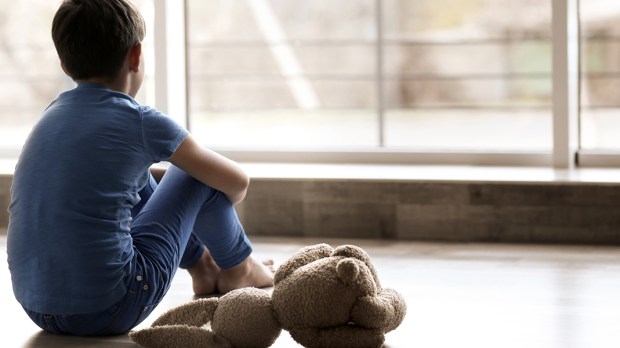In addition to mourning the death of their child, parents have the daunting task of helping their children survive the tragedy.
A parent needs to show caution in explaining what happened to their child. Some may want to say “He/she has fallen asleep,” and then wonder why their children are afraid of going to bed. Others may claim that “He/she has passed on,” “lives high up in the clouds” or “flew away to Heaven.” Such words provoke anxiety and apprehension in the minds of little ones, as whenever a loved one leaves or takes a plane, they may fear that they too will be gone just like their sibling.
“After Meryl died, her sister Gwen wanted to give her a big bouquet of roses. We went together to get it and she placed it next to her sister,” tells her mom. “We must get our child involved, provide them opportunities to express what they feel and allow them to put small objects (tokens of their affection) into the coffin.”
It’s for parents to determine whether their children are old enough to attend the funeral service and the burial. In most cases, it is recommended. These rites symbolize the acceptance of the new reality and reveal the final resting place of the physical body where it can be later visited. In fact, funeral rites play a significant role in the grieving process.When children are excluded from taking part in them, they may feel unloved and ignored.
Faith tried by death
In the wake of the funeral, a family is caught up in the spotlight. It is often after two or three weeks that the solitude and the realization of what has happened sinks in and becomes unbearable. “Suddenly, we were all alone,” say the siblings of Cecile, who died after a long illness. “The kids at school were confused about what to say. This was so much worse than silence. When people say nothing to you, it seems like they don’t care. One little word could have been enough to make us feel better.”
Months following the death are particularly difficult for the family. “Each person reacts to death in their own way”, observes Cecile’s mother Liz. Her 17-year-old daughter Sylvia was very reserved but suffered just as much as the others.
Nor should one be appalled by anger. “Our eldest no longer wished to ask God for anything. They prayed so hard for their younger sister to get better,” adds Cecile’s dad, Chris. “Our faith remains unshakable but it doesn’t prevent the anger. I understand how my kids feel because I feel it, too.But I also try to show them what makes me hold strong – it’s this certainty that Cecile is very happy where she is. One must always end the conversation with kids on a positive note.” Feeling raw and angry is a part of what makes us human. It’s normal and one shouldn’t be ashamed of it. Grief can make children act out in anger. It’s often nothing other than an epitome of the pain they feel. Death has become an integral part of their world, plunging them into insecurity.
To hold on to the memory of a child that passed away, some families include them in their prayers. “We have William’s picture in our prayer corner,” says Emma. “We ask him to intercede on our behalf. I always tell my daughter Anna to ask for his help when she needs something.”Generally, children preserve a close bond with those they’ve lost. “Audrey protects them,” explains Jerry, the dad of a little girl who died from cancer. “They talk to her, especially Bee, who is just five”.
Putting suffering into words
Kids who’ve lost their sibling grow up faster than their peers. They may look for a friend who has also experienced grief: “My best friend lost his dad. We talk together, because he gets me,” says Tim, Cecile’s brother. These spiritually precocious kids begin to ponder the mysteries of life, suffering and death long before some adults do.The best therapy for them is to talk about a loved one they lost, even if sometimes it means having a good cry together. A friend, priest, teacher, or health professional can play the role of a companion and a guide. “We must accept,.” confides Liz, “that our children won’t tell us everything, that they are looking for help from someone else.”
Gwen became depressed and stopped playing the day after her sister Meryl died. “A friend who works as a therapist accepted to talk to her,” says her mom. “She has also lost someone and told Gwen how it made her feel.And Gwen said: ‘Yep, that’s how I feel too.’ She cried rivers, but when we left she turned to me and said: ‘This was hard, but it made me feel better.’”
Death should not become taboo or be allowed to permanently hover over the family. Although, it may be hard to watch other kids playing with their dead sibling’s toys or taking over their room, parents must remember that life still carries on. The vital force kids possess helps everyone get through grief, especially if their faith is sustained by hope.
Florence Brière-Loth

Read more:
Helping children deal with loss and grief

